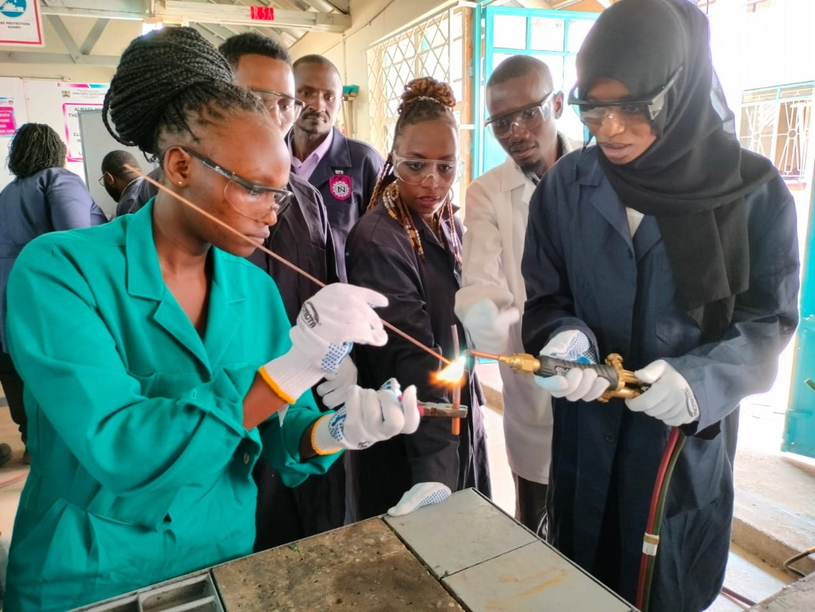GCI held a successful girls day for the Female RAC Technicians at the Nairobi Technical Training Institute. The girls interacted during the training on safe handling of Natural refrigerant and proved that, although it can be scary and occasionally difficult for women to enter a traditionally male-dominated field, it is still possible for them to excel and hold leadership positions in the RAC sector.
15th February is Girl’s Day. Also in Kenya. This year that meant proving womenpower is just as successful in the RAC sector and the Girls Day proved as a wonderful opportunity for women to show how valuable their skillsets are. At the Nairobi Technical Training Institute the female RAC technicians that participated in the girl’s days have been able to inspire younger generations, encouraging them to engage with work that keeps our society functioning in a more sustainable future.
Why empowering women in the sector is so important? As the RAC sector is growing in the next decades it is vital to satisfy the corresponding need for qualified technicians, who can properly install and service the RAC systems of the future. Although crucial for sustainable development and with room for everybody, the sector is still male-dominated and not all needed positions filled. So, there is room for improvement the industry especially from the perspective of female technicians. In connecting with like-minded women from the sector, learning the skills and seeing their work first-hand the girl’s day proved the strong point of women in the field.
Mercy Makena has been working in the RAC sector for over a decade.The experienced RAC technician narrated the importance of this sector to the economy and her experiences in the training. “I was once referred by a colleague to attend to a client who wanted a technician within my neighborhood to look into their refrigerator, when I knocked on the door and introduced myself as the technician, the owner of the house ignorantly said that, “I asked for a technician, not a house help”.
To fight such attitudes, the change of young women's attitudes towards skill acquisition in technical areas and on the RAC sector as a whole is only the first step. Connecting the local staff, showing the women's work, supporting their carreers and teaching them valuable skills in the handling of natural refrigerants definitely follow.

